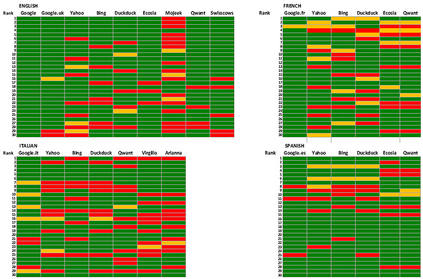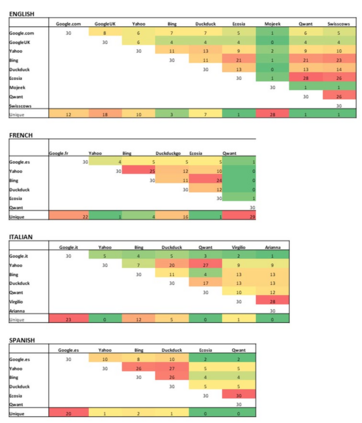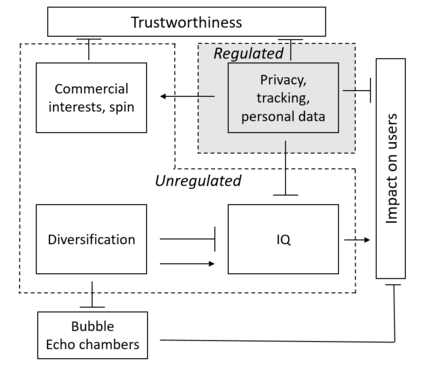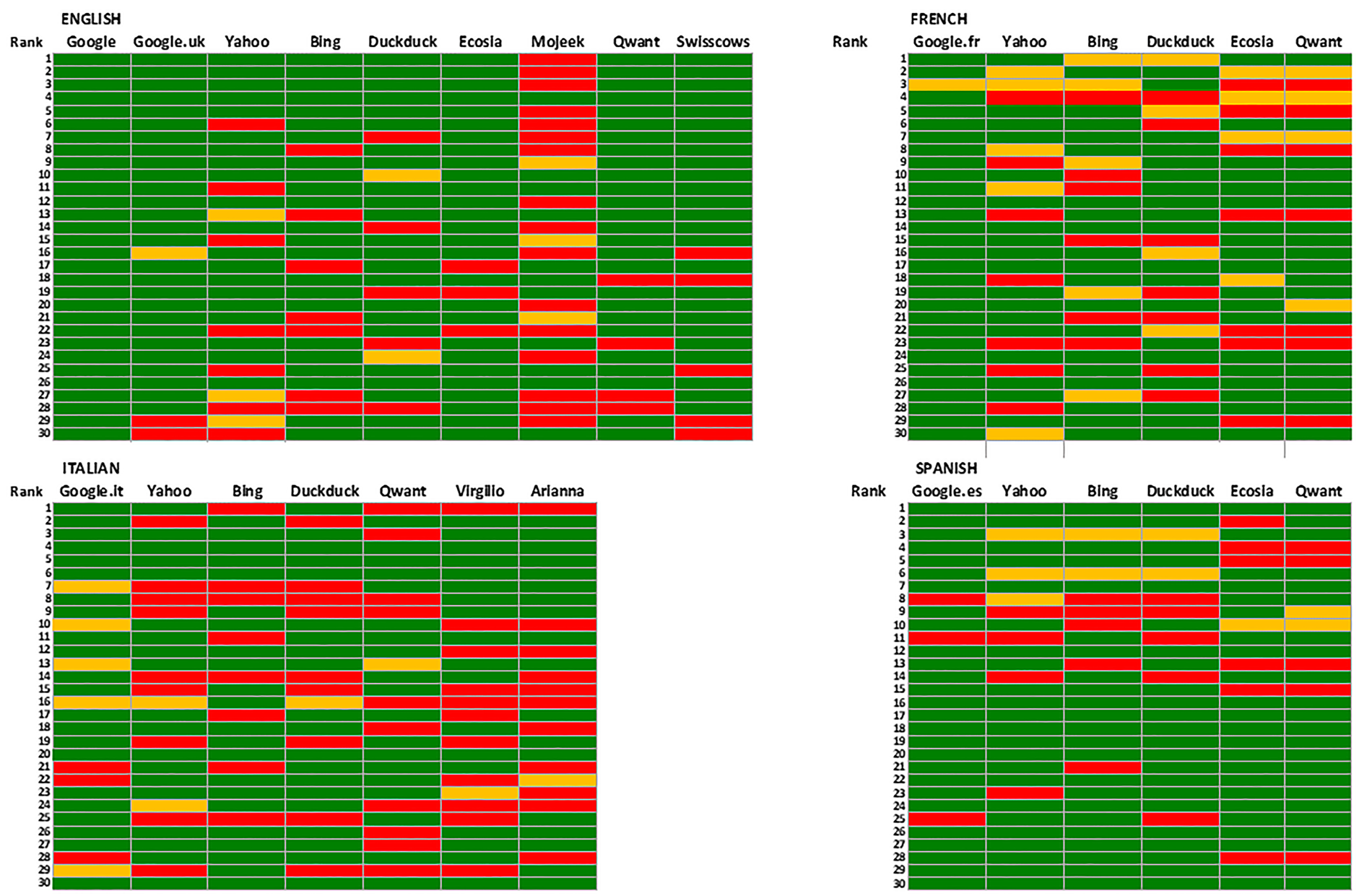The fact that internet companies may record our personal data and track our online behavior for commercial or political purpose has emphasized aspects related to online privacy. This has also led to the development of search engines that promise no tracking and privacy. Search engines also have a major role in spreading low-quality health information such as that of anti-vaccine websites. This study investigates the relationship between search engines' approach to privacy and the scientific quality of the information they return. We analyzed the first 30 webpages returned searching 'vaccines autism' in English, Spanish, Italian and French. The results show that alternative search engines (Duckduckgo, Ecosia, Qwant, Swisscows and Mojeek) may return more anti-vaccine pages (10 to 53 percent) than Google.com (zero). Some localized versions of Google, however, returned more anti-vaccine webpages (up to 10 percent) than Google.com. Our study suggests that designing a search engine that is privacy savvy and avoids issues with filter bubbles that can result from user tracking is necessary but insufficient; instead, mechanisms should be developed to test search engines from the perspective of information quality (particularly for health-related webpages), before they can be deemed trustworthy providers of public health information.
翻译:互联网公司可以为商业或政治目的记录我们的个人数据并跟踪我们的在线行为,这一事实强调了与在线隐私有关的方面。这还导致开发了没有跟踪和隐私的搜索引擎。搜索引擎在传播低质量健康信息(如防真空网站)方面也起着重要作用。这项研究调查了搜索引擎的隐私方法与其返回的信息的科学质量之间的关系。我们分析了英文、西班牙文、意大利文和法文头30个网页返回搜索“静脉自闭症”的情况。结果显示,替代搜索引擎(Duckduckgo、Ecoxia、Qwant、Swisscows和Mojeek)可能比Google.com(零)返回更多防真空网页(10%至53% )。然而,一些本地版本的谷歌(Google)比Google.com(高达10% ) 返回了更多的防真空网页。我们的研究显示,设计一个隐私自流的搜索引擎并避免用户跟踪产生的过滤泡沫问题。结果显示,替代搜索引擎(Duckduckdgo、Ecosia、Qwant、Swscows和Mojeeks)可能比Goof- 退回更多的防真空搜索引擎(从公共卫生相关信息供应商)更需要,因此被认为具有安全性),可以测试健康相关。








